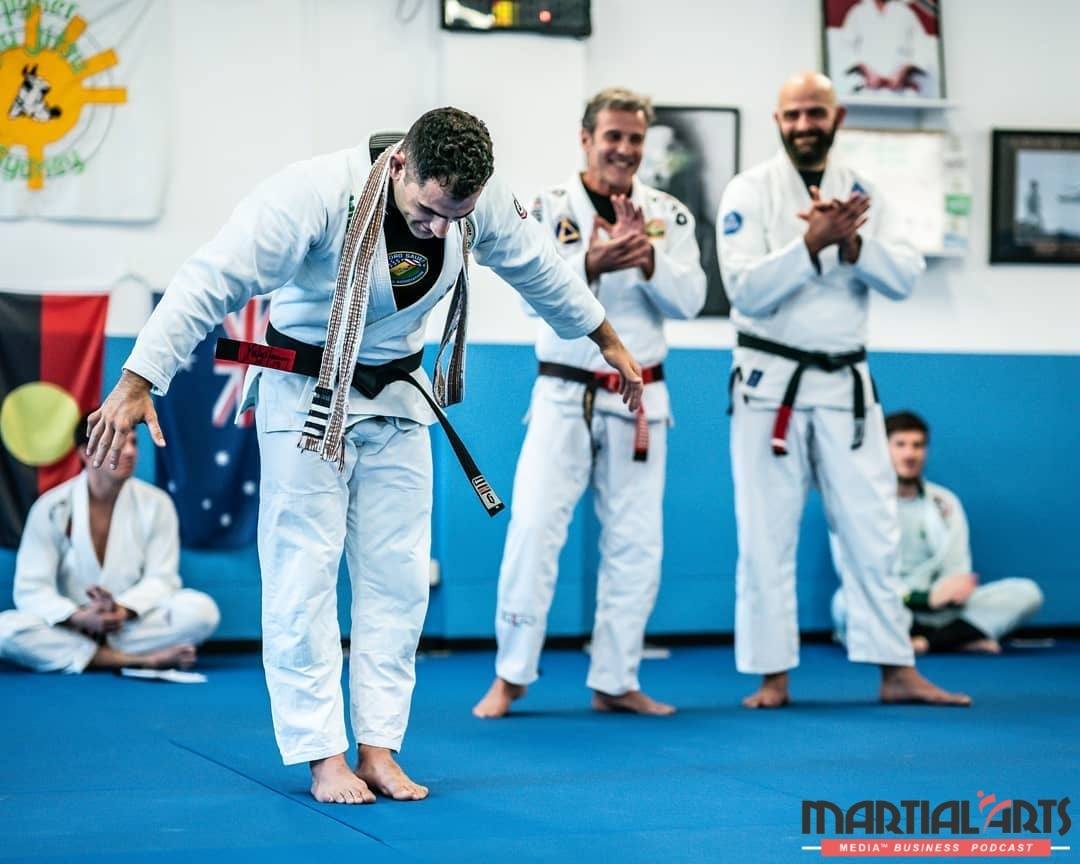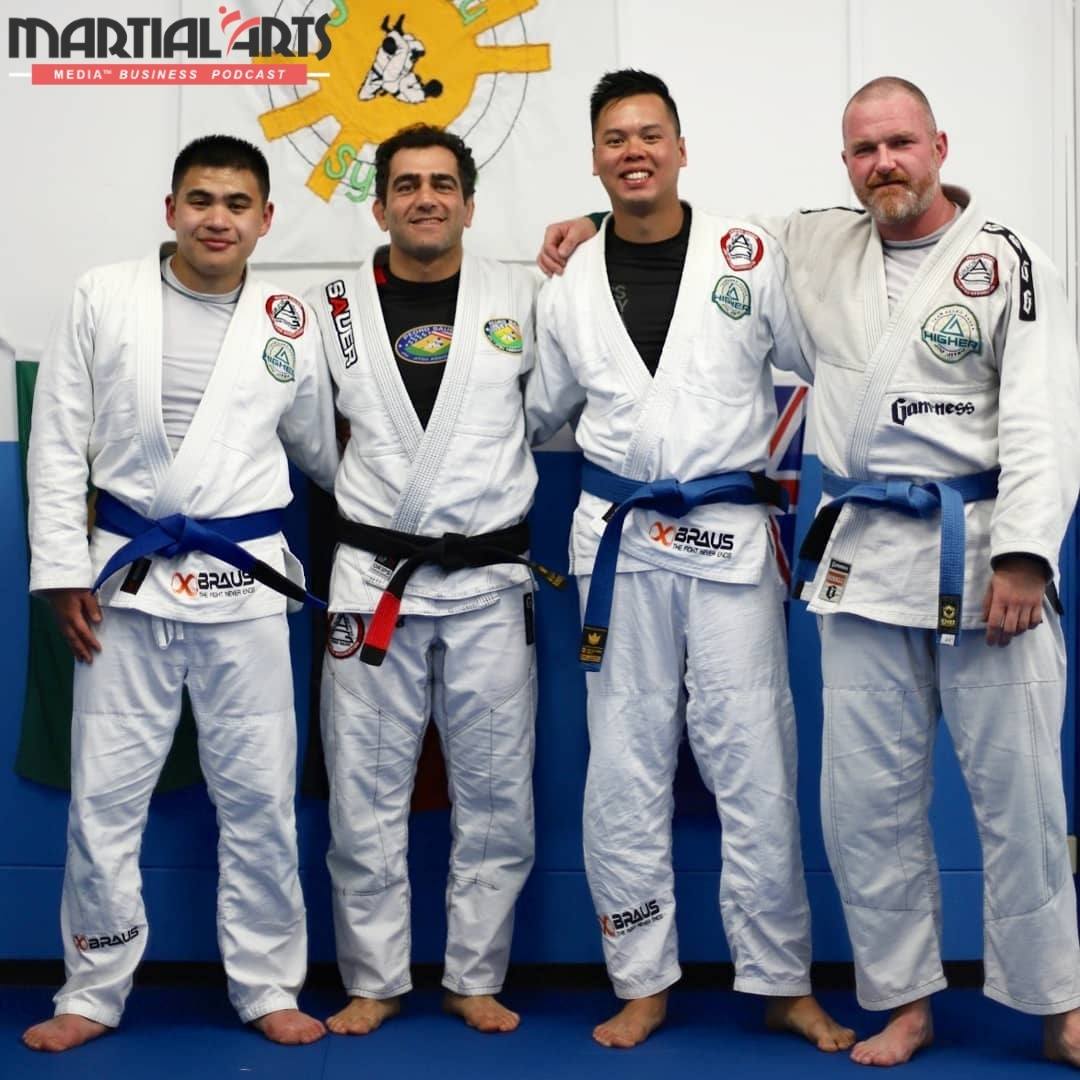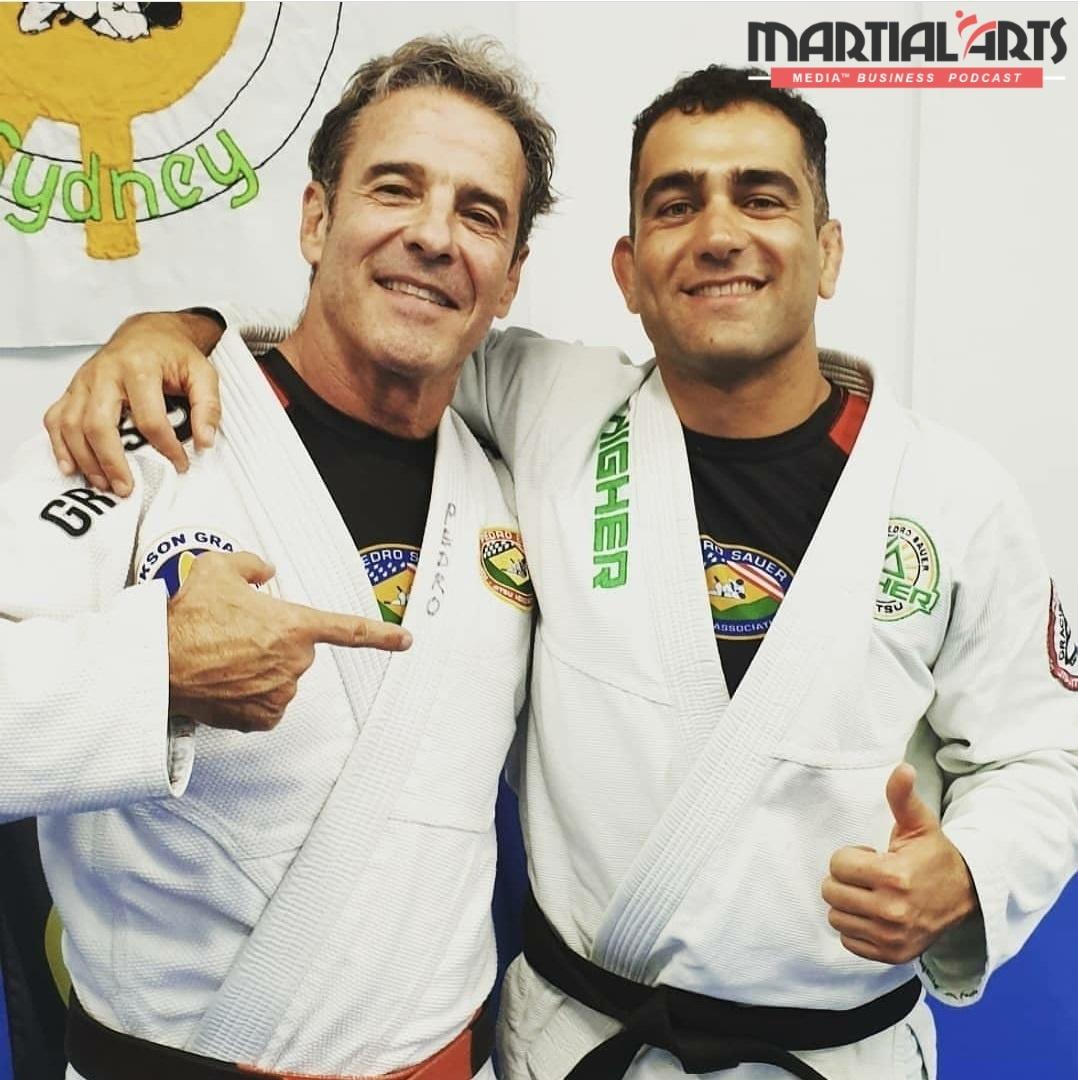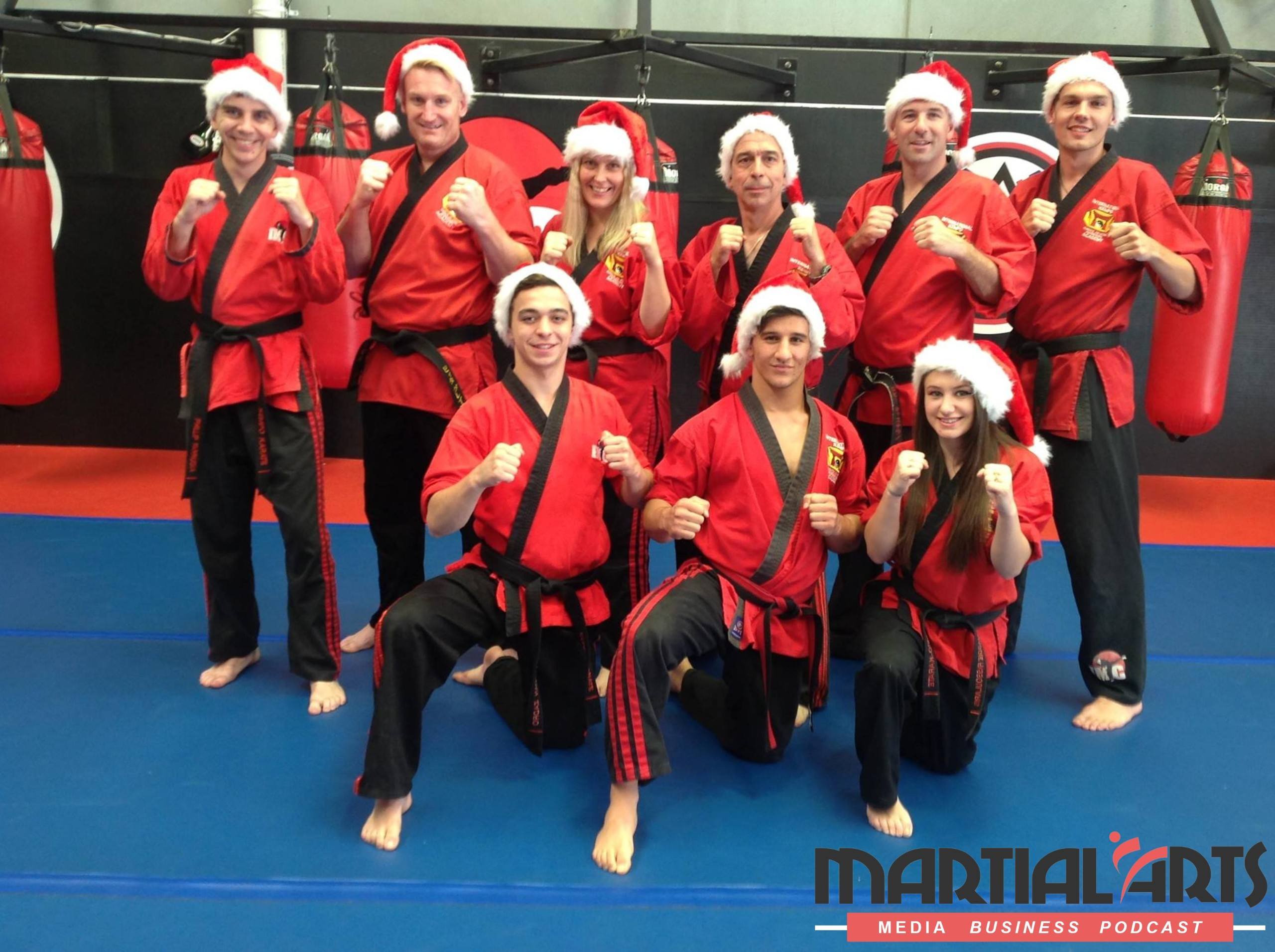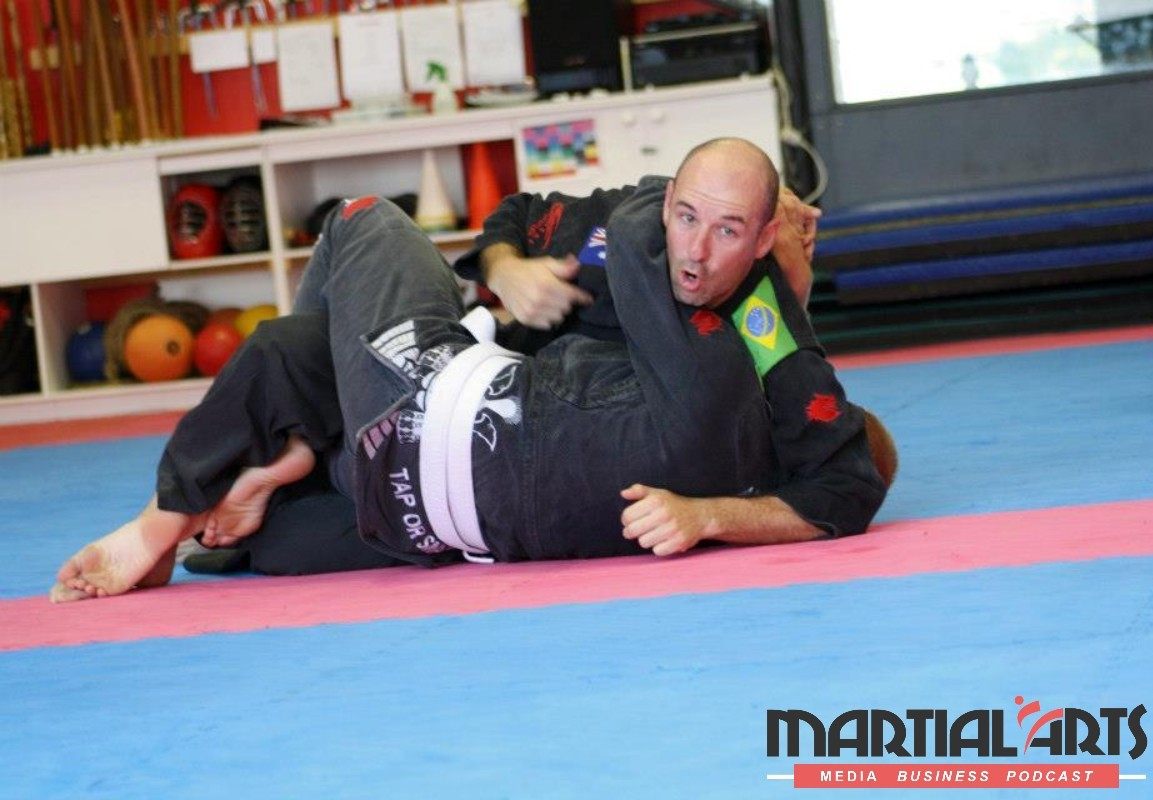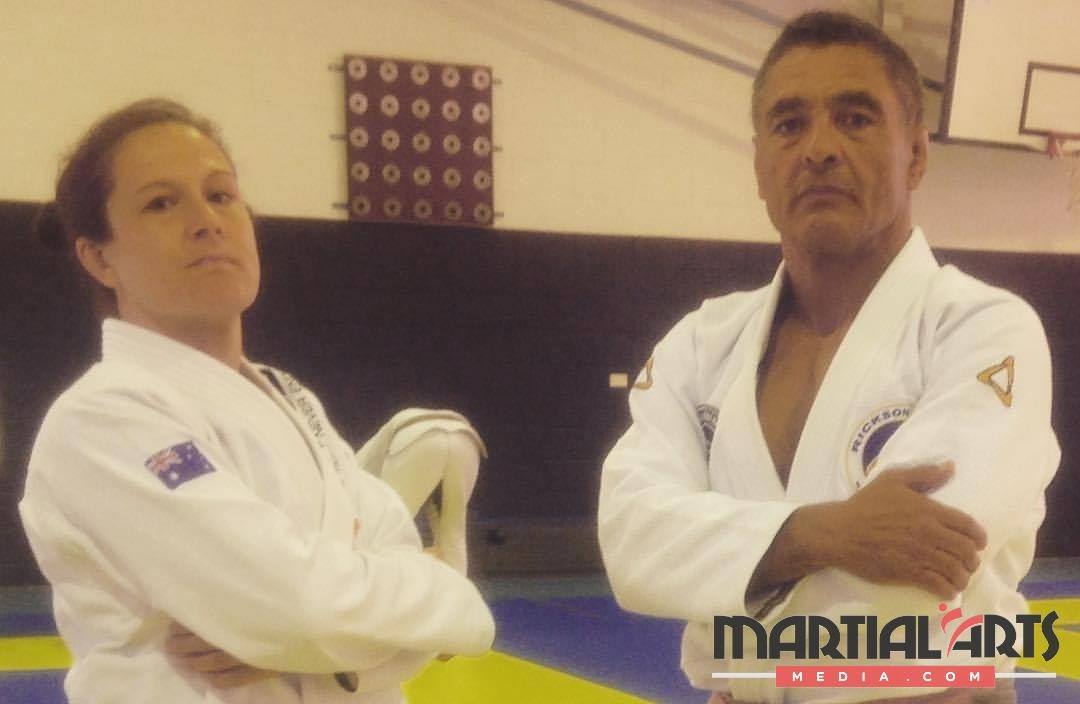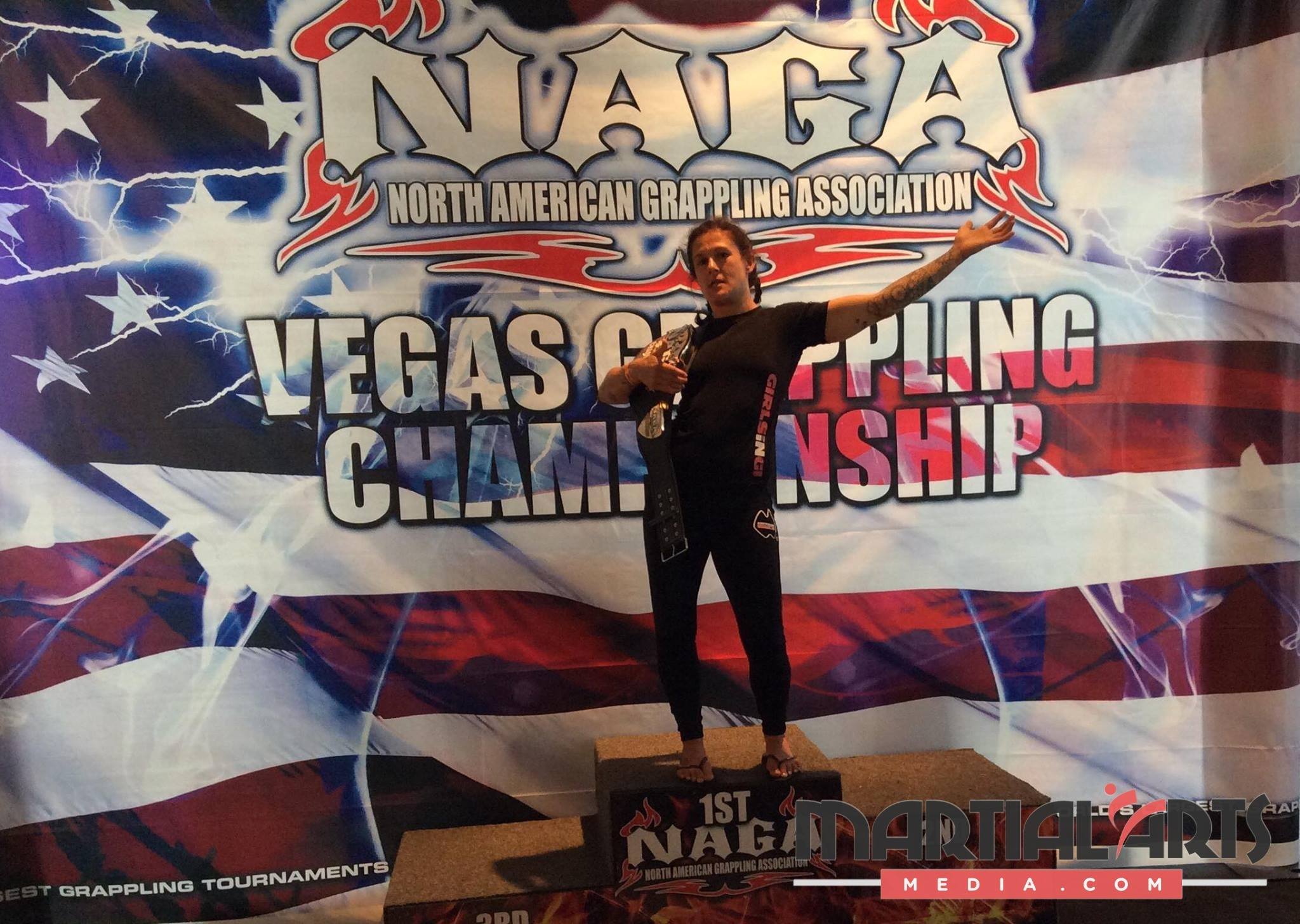Australia’s first ever BJJ black belt, John Will, shares a lifetime’s experience of being an outstanding coach, adapting to adversity, and mastering life through a ‘black belt mindset’.
IN THIS EPISODE:
- What is the ‘black belt mindset'?
- How to learn new skills effectively and enjoy the process
- How to create a positive martial arts club culture
- The consequences of chasing martial arts marketing tricks
- The smartest financial thing you can do for your martial arts business
- And more
*Need help growing your martial arts school? Learn More Here.
TRANSCRIPTION
Most people aren't up for that. They want the quick magical, they want the quick answer. We want the quick everything, right? Instant gratification, the marshmallow theory – you need one marshmallow now, rather than two marshmallows two weeks later, people want that. So, they want quick answers. And I think that's silly, because I don't think it's about the outcome. I think it is about the journey and about enjoying the whole process.
GEORGE: Hey everyone, welcome to another Martial Arts Media business podcast. This is George Fourie, and I've got an exceptional guest with me today, John Will. And so, I'm going to give just a short little intro. So John, if you're not familiar who John is, John is famous as one of the Dirty Dozen, meaning he is one of the first twelve non-Brazilian to reach a black belt in jiu jitsu, one of the early adopters and also the first Australian to receive a jiu jitsu black belt. Welcome to the call, John.
JOHN: Yeah. Thanks, George. Thanks for having me.
GEORGE: Cool. So, look, if we had to go through all the credentials and background, we'll probably take up all the time of the podcast. So, and when somebody has their own Wikipedia page, I think that's where you should start and just go read that. So, I want to skip that. I think I want to just start with a bit of context how I initially came across you, John.
So, back in, I think it was 2015, I was probably training jiu jitsu for about one year, and the club where I was training at was sort of a side gig, you know, they were a very successful karate school, but jiu jitsu wasn't really the thing. And, jiu jitsu sort of crawled into my life, and I felt like, alright, this is the thing that I'm going to do. And you know, I'm going to only start with the training. So, I was looking around Perth, and I wasn't really, you know, well versed in the know-how of which clubs do what and which, you know, which different organizations and so forth. And I came across a podcast, BjjBrick Podcast.
JOHN: Oh, yeah.
GEORGE: And I was listening to you talk, and I can't remember all the details, but I remember the one thing that stuck by me, which was the way you articulated stories and combined it with metaphors and your way of teaching. That struck me as, alright, you're someone that doesn't just know martial arts, but know that delivery aspect of how to teach it and how to articulate. So, I thought we could just start straight there. How did that develop, that side, obviously have lots of years and years of martial arts experience in jiu jitsu and many other styles, but where did this concept of teaching develop, on how you articulate with stories, metaphors, and so forth?
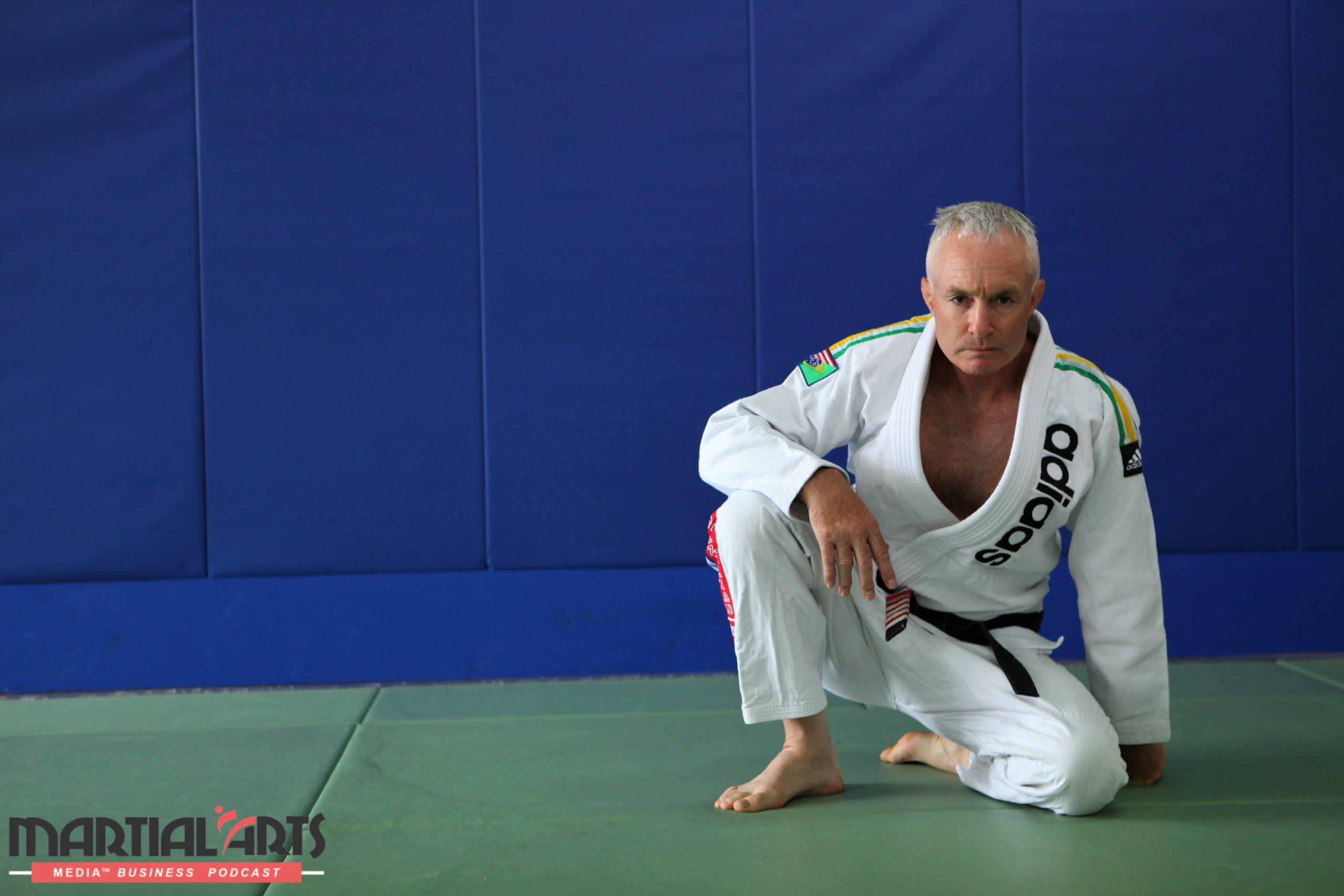
JOHN: Well, I think that the way that I started, first of all, even though I started in a traditional martial arts background, you know, meaning Taekwondo, karate, I did some freestyle wrestling, and all that, that was just like my first toe in the water. My real experience was gained in Southeast Asia, where I did a lot of traveling back and forth and training over there in the formative years of my life, you know, between like the age of 17, 18 through to my mid-20s.
And so, the way that I was learning was by looking and analyzing, because I couldn't speak the languages, George. Right? I mean, when they first went over there, you went to a foreign country, I didn't know whether they were giving me good instruction or not. Now I can hazard a guess – probably not. Just like most people, they're just saying things, you know. And so, because I couldn't speak the language, at least initially until I learned, you know, how to speak Indonesian or different languages. Prior to that, I'd be looking, I would figure out – who's the best guy? What's he doing? What's he doing that's different from everyone else, and try and model that.
So, I became, my learning style was one of the like, an autodidact style of learning how to teach myself through modeling. And that in itself, I think, puts you on a different road than most people. You know, because you've got to look, and you've got to analyze, and you've got to do comparative analysis, and all that kind of stuff. So, I was always like that, and then, I think that speaking is just thinking out loud. So, that's the way I was thinking, I was always thinking analytically about things. So, then when I started teaching, to the extent that I did start teaching by that, I was just doing that out loud. And that's how I started.
And then I had a few influences that were known martial arts people, and I thought – wow, I would like to be able to sound like them and be effective in the same ways that they were being effective. But in martial arts, a martial arts landscape rather than in the landscape they were on. Robert Kiyosaki was, I mean, nowadays, people might know Robert Kiyosaki, the guy who wrote ‘Rich Dad, Poor Dad' and the guy who's shilling gold and Bitcoin.
But prior to that, way back, I'm talking 35 years ago, I met Robert, I spent a few weeks with him, and I was astounded. Like, I was really impressed by his communication style, teaching through analogy, gamifying lessons that he wanted to impart to other people. And I thought, wow, I'd like to be like that, but in the martial arts landscape. So, that kind of got me going that way. And then I guess the short answer to your question is, that was the beginning, the catalyst if you like, I was always analytical, because of my, where I started training in other countries, not being able to speak the language.
So I did the analytical, I was influenced by him and a couple of other people, thought – wow, they really do well in their own thing. I wonder if I can do that in my own area of interest, martial arts, and then the next thing, so I combined those two things. So, every time I took a class, I would debrief myself with notes. If I said it this way, I got that result, if I change that around a little bit, I got a different result. So, I did brief myself for probably 20,000 classes. That's how I kind of developed my own teaching style.
GEORGE: Alright, so, it's a lot of fine-tuning and refining, because what you're mentioning here is you're actually debriefing every class and being very analytical about the approach, really refining process ideas.
JOHN: Yeah. Yes.
GEORGE: Okay, cool. A couple of things that you touched on, and I was at your seminar a couple of days ago, at AMMA Gym, here in Perth, and a couple of things that you said that really resonated with me. And, you know, one part I'm trying to listen for that jiu jitsu knowledge and the other thing is, that that really struck me. One thing that you mentioned was talking about a black belt brain, and talking about how you develop as a martial artist, as a black belt, and how it kind of surprises you that people don't apply that all or out in business.
I've used a fraction of that analogy before when we work with martial art school owners just about growing their schools, and really tying that back. Well, you know, if you really, if that's how far you get with your art, and you develop that as a mindset, then why is it not being applied elsewhere in business? In business and in life? So, wanted to ask you actually, John, where do you feel that people actually get stuck, that they're not making this a way of life in all aspects of life?
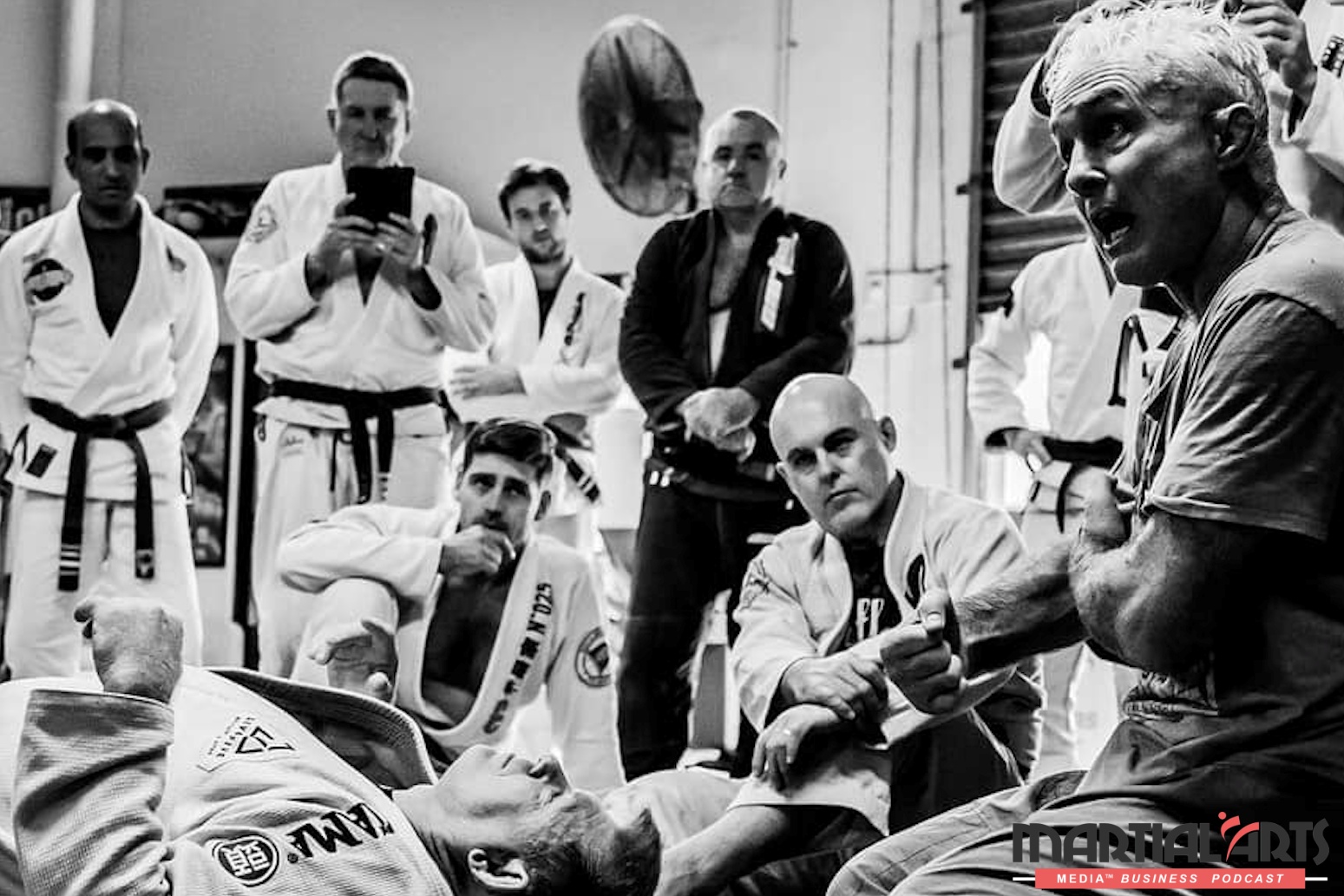
JOHN: I think it is, it is strange to me, George that people don't. I can't relate to that very well, because I can't see how if you do something here, and the approach you take here works for you, then I just do not understand why you don't take the same approach everywhere else. I don't get it. I was always that way. It's just a matter of how much time you allocate, in my view, meaning that if you take an approach to something – growing potatoes or, you know, designing houses or doing jiu jitsu or cooking, and it's working for you, like, if you're methodical with your cooking, you know, you go, “Well, I want to learn to cook. I'm interested in how to do that.
So, I'll find some people who are really good at doing that. And I'll do what they do, and they have a recipe and so, okay, if I follow his recipe, exactly, I should get something pretty similar.” So, to me, that's like, an absolute no-brainer, why would I try to reinvent the wheel? Why would I not do that – follow the recipe? So, when I see people trying to bake a cake, to pursue the analogy further, the recipe has eight ingredients, mixed in this order, but they can only bother using five ingredients, and not using the same order. I do not understand why they do that. It is absolutely beyond me.
Worse, they expect or complain that they don't get the same result as that person, when clearly they're only using five out of eight ingredients. I don't understand. So, I don't know, like why people don't do it. They are unreal, people are delusional, and like a lot of people clearly when you look around the planet, as a species, human beings are very, very happy to delude themselves at every turn. And to think that we can get this done, but without doing the same work as the person you’re trying to model, is kind of delusional. It's magical thinking. Perhaps that's what it is, and human beings, as we can both well imagine without drilling down too much, are awesome at magical thinking. Like, we are masters of bullshit, like, and convincing ourselves that, you know, all these untrue things are true, because it makes us feel better.
And if I want to, you know, apply that same magical thinking to baking a cake, I can make the cake without, do I really need the eggs? I can't be bothered going to the shop, I'll do it without the eggs. I might think that. But you know, that's again, it falls into the category of magical thinking to me. I think the black belt mindset, if you and I are going to call that such a thing, to me it's very personal. It's different for every black belt, you know, and who am I to make a statement about what that means? But for me, what is a black belt in BJJ? What is a black belt mind? How is that different from a brand new white belt mind? I don't think it's got much to do with the amount of techniques you know or don't know. I don't think that's the thing, because some black belts know 1500 techniques, and other ones might only know 300 techniques, but it's not about, it's about how you use whatever techniques you know.
By the time you're a black belt, you want to, in my view, have developed an appreciation for nuance and detail. And you realize that small nuance and small details can make a giant difference, and that's something as a beginner, you don't realize – you're just looking for the big things. And then as a black belt, you realize that by having your fingers that way or pushing that way, it's a giant, it's a big difference in outcomes. So, that's what I mean when I say a black belt mindset, someone who has developed a palate for nuance and detail. Like coffee – what's the difference between someone who's a great barista and someone who doesn't know how to do it? They have developed a pro coffee.
GEORGE: Yeah.
JOHN: And that's something that takes a long time to develop. With that kind of mindset, if you can have an appreciation for nuance and detail, and the importance of nuance and detail, and how relevant that to outcomes that might occur. It should occur to everyone that the same thing applies, irrespective of the subject matter. That if we're growing vegetables, I still need to figure out what are the small little things that my grandma does to grow tomatoes, you know that she gets an outstanding result, I don't. I've got to do all the things that she's doing, not just the convenient things that she's doing. Dig a hole, throw seeds in, cover up, water it. That's the convenience stuff.
What are all the little inconvenient things that she's doing? But they make a big difference in outcome. I think, people, most people aren't up for that. They want the quick magical, they want the quick answer. We want the quick everything, right? Instant gratification, the marshmallow theory – you need one marshmallow now, rather than two marshmallows two weeks later, you know, people want that. So, they want quick answers. And I think that's silly, because I don't think it's about the outcome. I think it is about the journey and about enjoying the whole process.
GEORGE: As a dad and having a teenage son, I think that was one of the hardest concepts to actually get across to my son. You know, when taking music, for example, we, you know, I used to play drums when I was a kid, and I remember trying to learn and getting this tape cassette of Enter Sandman, and I've never seen somebody sit in front of drums. And I'm like, trying to figure where my arms go. And I'm listening, and I'm rewinding and forwarding. And you know, when my son started playing when he was four years old, at the time when he was enjoying it and playing it, yeah, it was YouTube, and it was there. The outcome is already achieved visually.
So, the hard work almost feels unnecessary. And I think that takes away a lot of resilience in kids that it's just, they don't see the work, and the outcome is already visible. But on that, so, you know, on the topic of black belt mind and talking about recipes, and I guess what it really comes down to then is habits and problem solving. Do you have sort of a, I don't want to put you on the spot, but do you have sort of a recipe in mind or something that, you know, you have developed, that if you took on a new skill or whether it's investing or just anything other than jiu jitsu, that you have this methodology of how you go about approaching things?
JOHN: Well, we have a big advantage nowadays, of course, as you just alluded to, you know, YouTube, and we've got such so much information that, you know, we didn't have when we were kids, we didn't have that. So, that's both a good thing and a bad thing. Yeah. So, at least I'll use the good thing. So, I will tend to go out and find out, like, I try to get the big picture first. If I'm going to build a puzzle, like a jigsaw puzzle, I'll want to see the front of the box, because I want to see what I am trying to build here. But that's something that is kind of important.
I remember doing that experiment way back. You know, I've got a bunch of jigsaw puzzles, got a bunch of people all divided up, I gave half the box of a jigsaw puzzle, the other half just the same puzzle, but in plastic bags. Click stopwatch, go! I mean, who finishes the puzzle? The people that know what they're building, and the other guys are still trying to figure out it’s three ducks in a pond, you know, that they're clueless. But the first thing I always tried to do is I try to take a macro view, step back, what is it? What's the whole, what's the bigger picture? And YouTube is awesome for that, You know, you can do that. So, I try to get the big picture first. Okay, I'll give you an example of something more concrete. I designed and built my own home, the one that I'm sitting in now.

So, what did I do? Well, I just went online, and I Googled very simply, best 50 architects of all time, well, recently. And then each architect, what are their top three houses of their career, or buildings or something? So now, I've got three x 15 – 45 pictures. Then I asked about the big picture, what's happened in architecture? Now, I look at those 45 pictures and go, “What do I like?” Well, I don't like 40 of them that leaves five. I like, you know, falling water, the house, falling water. What's the architect? Who's the architect – the famous, oh my god, slipped my mind. Everyone's listening to this guy, idiot. It's, anyway. But I like the look, I go, I like the look of that. I like the look of that. I like the look of that.
So, I get those things. And then I started, I got Google SketchUp, spent 15 hours trying to learn how to do the Google SketchUp and then I kind of drew some stuff that looked like what they did and then went from there. You know, so, I don't think it's hard. So, I guess my approach is always to try to get the big picture first. Get a feeling, what I like about it. Then I try to find some people who have done it before me, which is like, lots. Then try to isolate the best ones, and then kind of model. See if I can get into their head a little bit like, wow, you know, and what they are thinking about. And then I go from there.
I'm also okay with making mistakes, I'm okay with that. As long as it's not catastrophic, you know, as long as it's small mistakes, you need to make a lot of them, you don't want to make big mistakes that you can't come back from. So, I'm conservative in that way. I'm up for making mistakes, I rather make lots of little ones that don't cost me much. Rather than all in and make a big one. You know, investing in cryptocurrency, put 1% of your portfolio in and make as many mistakes as you want. And then when you figure it out, then put in another 2%, and you're good to go, right? You don't go all in. I mean, every now and again, someone goes all in, but then someone picks the time, right, gets it all right, and they do exceptionally well.
GEORGE: And we hear about him.
JOHN: We hear about that guy, because of what's it called? Survivor bias. You don't hear about the other 99. So, I'm a bit, I'm much more fearful. And I will go, I'll go all in, but with 1%, you know what I mean?
GEORGE: Yeah, perfect. So I've got, I guess, if I just break it down, what I got from that big picture, get a clear understanding, part of what you actually want out of this thing, like, what do you like? Boil it down into who can you model and they look for the little attention to detail, the nuances.
JOHN: Yeah, exactly. Yes.
GEORGE: And I guess the last thing, which is always the thing that no one does, is take action. Take action and do it. Yeah.
JOHN: Yeah. The reason why I don't feel a problem, like, I don't seem to have a problem with pulling the trigger, or taking action is, I actually enjoy that process that we just talked about. That's the fun for me. That is the fun, the outcome isn't. I'm not waiting to move into my house to enjoy it. You know, I'm not waiting to take the trip, to enjoy it. I enjoy the planning of the hike, or whatever it is, you know, and I enjoy sitting down if it's about, you know, Bitcoin or it's about whatever it is, I enjoy the process of that thing we're talking about. I actually like that. I like that bit. It's almost like, you know, it's a bit of a letdown when you get done, because that process is, in a way, ended. The fun is the training to black belt. It shouldn't be like, I'm not having fun until I get the black belt.
GEORGE: That's depressing.
JOHN: That is depressing. Like, anyone who's like that will never get it, because it's just too difficult. That is the fun, you know, so therefore, yeah, I think you enjoy the whole thing. I enjoy learning. And I enjoy learning about new stuff and I enjoy that uncertainty, try and figure it out. Try to put the, you know, the bits of the puzzle together to sit back and see the picture. It's not that it's all miserable until then. Oh, it's done. Beautiful picture, two ducks in a pond. What, no, the fun is doing it. Yeah.
GEORGE: Perfect. I think something that you said on Sunday that goes well with that is, in a way there's no such thing as a bad position in jiu jitsu, meaning that you can put yourself in situations where you're going to make mistakes and be vulnerable and still move through it.
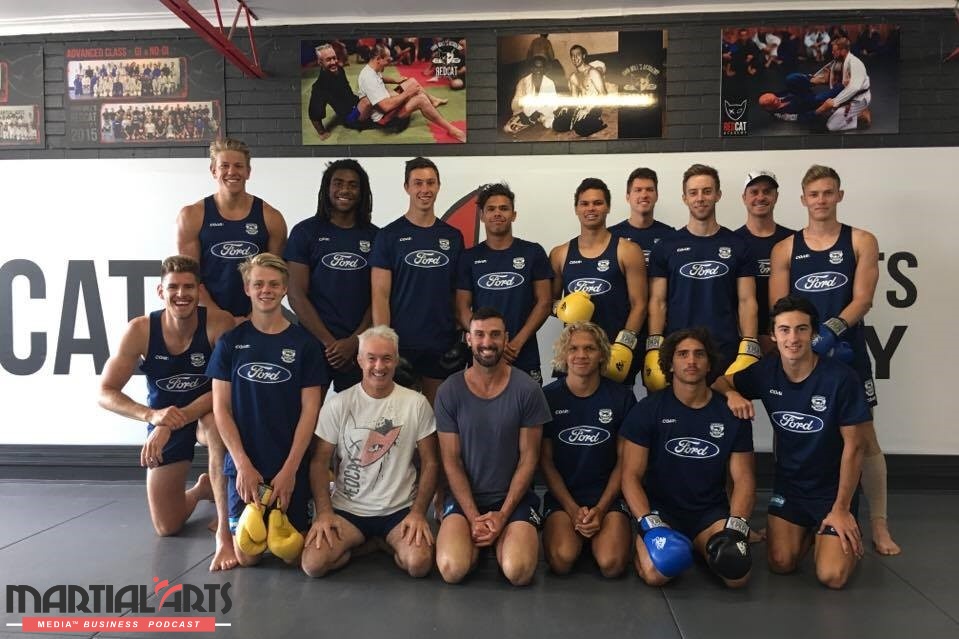
JOHN: Yes, anything, like, if we're in jiu jitsu. So like, any position, unless you're telling me that you know, everything there is to know about that position? Or if it's a bad position, so-called bad and underneath side control, do you know everything about escaping and this and that, because if you did, we wouldn't be there, right? So, you don't, so what do you need to do? You need to spend more time there. So, in other words, wherever you are, is exactly what you need to do. Enjoy it. It sounds like a Buddhist Zen thing, but it's not, it's just real.
Wherever you are, is exactly where you need to be, and if you're stuck on an inside control, then that's exactly where you need to be, and you need to be learning, and then the same thing with everything else in life. You know, if you're, if you've got financial drama and whatever, and you're trying to fix that, then that's exactly where you need to be. Someone giving you $5 million to make your problems away, is not going to make your problems go away. It's just going to put a band aid over it. But you need to be wherever it is. So, you may as well enjoy it, because eventually, it will go away. You won't be there, you'll be somewhere else, with another set of challenges or whatever. It's all good.
GEORGE: It's all good, yeah. So, I want to talk about two things actually, if we change gears just slightly. Obviously, coming out of things like COVID, you mentioned, it's been your best year yet. And I want to talk a bit about club culture and things like that. But I think first, probably a good place to start, as I mentioned it – pandemic, if you want to call it that, COVID presented a lot of challenges, interesting challenges for a lot of schools, a lot of martial arts styles, jiu jitsu and everyone else. I know, I've met a lot of people adapt, you know, a lot of people crawled in a hole and waited for it to go over. Some people took it on, took different directions in business. How was the experience for you?
JOHN: Yeah, we shut where I am in Victoria, Australia. We shut down for 10 months, meaning our academy shut down for 10 months. So, like everyone else, at the beginning, I thought, “Oh, this might be two weeks or might even be three weeks”. So, it was like, “Awesome! We get to take out a two week break, and then we're going to be back,” and then two weeks turned into three weeks. So, at that point three, four weeks – uh-oh, this going to go on for a while, you know, it was becoming a little bit worrisome.
By worrisome, what I mean by that is, it's unprecedented. I've never been here before. We've never experienced this before. This goes on for three months, six months, and nine months. What's going to happen to my academy, my martial arts school? Like, I don't know, but because I've got, there's no historical precedent. Do they all come back? Have they all taken up skateboarding? As it turns out, they all came back the night I came back. I didn't know that at the time.
So, I just made the best of it, we had a great time – my wife and I did a lot of stuff we wouldn't normally do, because you're forced to. So, go for bike rides and walks and this and all that. So, great. Pointed my brain at a few things that don't really interest me that much, but I know I got to do it. You know, like my self-managed super fund, my finances. I'm not interested in that kind of stuff, but I've got the time now, so I may as well look at it. And it's amazing when you point your brain at it and tweak a few things, how much better things get. You know, it only takes 5% of your attention, is infinitely better than 0% of your attention.
So, I pointed my mind at a few things that didn't interest me, but I've got nothing else to do, so I may as well do that. Wow, that was good. So, it was all of that. But it was interesting to me how what I learned from it is, it was really like pressing the pause button on a movie, going away for 10 months, coming back and I just press play, and the movie started playing again. So, I can't tell. Like, a week later, after we started again, I could not tell that there'd been a break. The only thing was that I had not opened my academy door for 10 months. That's good to know, in case it ever happens again. Also heartwarming to know, you know, everyone's pretty keen to get back to training. A lot of schools struggled, because I know a lot of schools and a lot of them struggled. A lot of them struggle, because they were completely unprepared for a Black Swan event.
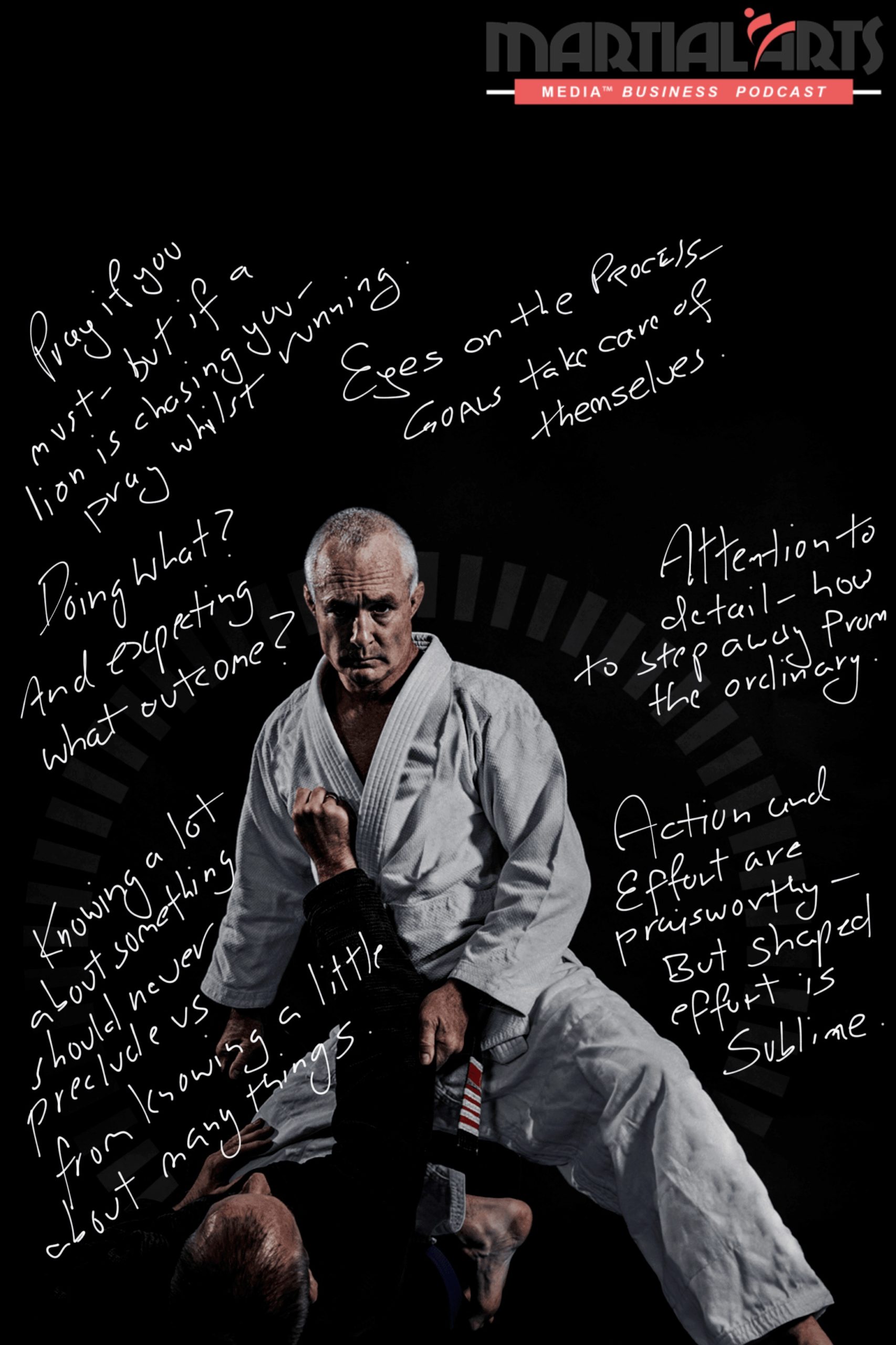
So, for those who don't know what Black Swan event meant, you know, it's just a way of saying, it's a book by Nassim Taleb. And he wrote a book called ‘The Black Swan', and basically, it just means a completely unexpected event. But when there's a completely unexpected event, you can't, it's difficult. Most people don't prepare for it, because to prepare for things means you kind of expect it.
So, an unexpected thing like an asteroid hitting New York or a pandemic, most people are not prepared for it. So, that taught a lot of people a lesson. They need to make sure they have 6 – 12 months of money put aside for an emergency. They need to make sure, you know, all these kinds of things. Most people didn't, so they were 100% reliant on their income. You know, that must have put a lot of stress on those people. I didn't need an income, I've got enough income put aside for another 20 years. So, I don't need any. So, to me, a cup of coffee, or a cup of water, or, you know, whatever, I was just sad that I couldn't see the people who I normally see, and train on a mat, and do teaching, which I love doing. The money wasn't a part. I didn't care about that. So, that's interesting.
Like, I think now people, they should go, you know what, maybe we should start saving 20% of our income, like for a rainy day, not just for retirement, I'm talking about just for an emergency, you should get, because emergencies clearly happen every now and again. Some businesses fell over, you know, now I take a harsh view of that. Probably a bit unfair, but I say, you know what, that's Darwinian forces at play. Here they are, next. Bit mean, but hey, that's nature. You were weak enough to fall over? Yeah. You don't deserve to trade in the marketplace. It's interesting.
My wife and I had that conversation, you know, about all these businesses closing. I know, I mean, it always saddens me, you know, with the business going down, but I also think, you know, was that business going down already? Was COVID just the tipping point? Yes. Yeah. I think you're perhaps, I mean, if you're on that, if you're walking such a fine line, really, do you want to do that? Walk such a fine line for the rest of your life? Really? I'd be getting another job, or another two jobs. I mean, someone asked me the other day, it was only five minutes. It was after a class. I didn't have any time. But they said, “I heard you got some properties.
So, how do you do that?” I've got a question to ask me, and I've got five minutes on the way. I said, “Do you have a job?” And he goes, “Yeah, I've got a job.” “What do you do?” “I do this.” “How much do you earn this month?” “Okay, here's my first thing, you need two jobs, or maybe three jobs. Go get two more jobs, and once you get two jobs, and you're saving all the income for those extra jobs, then come and ask for the next step. You got to have some fat or some leeway, I don't think you can be walking along, living on such a fine margin. That's not a great way to do life, I don't think – because the slightest little earthquake, and you're dead. I used to call it, you know what I used to call it, George? A bug on a leaf.
A bug on a leaf, so, in the canopy of the rainforest, a branch is falling down, it's opened up a hole, a little ray of sunshine comes down. And it makes this little one meter square ecosystem with certain little mosses and certain leaves and it's a certain temperature. And if you're a bug, that's beautifully acclimated for that one square meter that is not a good place to be. Like, you've got no options, you can't move anywhere. If there's a five degree change in temperature, you're dead. But I don't want to be that delicate an organism. I want to be like a cockroach. Shit, it can be minus 20, it can be plus 40. There can be wind, no wind. It can be radiation, a nuclear bomb can go off, and I’m golden. I want to be a cockroach. A bug in a beautiful little environment.
GEORGE: I love that. Change gears again, just a little. I was chatting to one of your students who works with us, Sam Broughton. Actually, I was on your website last night, bjj.com.au. By the way, and I know it's a side note, but what a great domain name bjj.com.au. I'm a bit of a domain name nerd.
JOHN: Early adopter!
GEORGE: Early adopter is what it's called. Yeah. There we go, if you had any questions about the early adopter there. I was looking through the list of black belts, some of the people that we work with that's on that list, Brett Fenton, Cam Rowe, Mike Fooks, also Karl Norton. You know, we were talking about questions and things that we should discuss and, and you mentioned that I should ask you about club culture – club culture and the relationship between student and teacher.
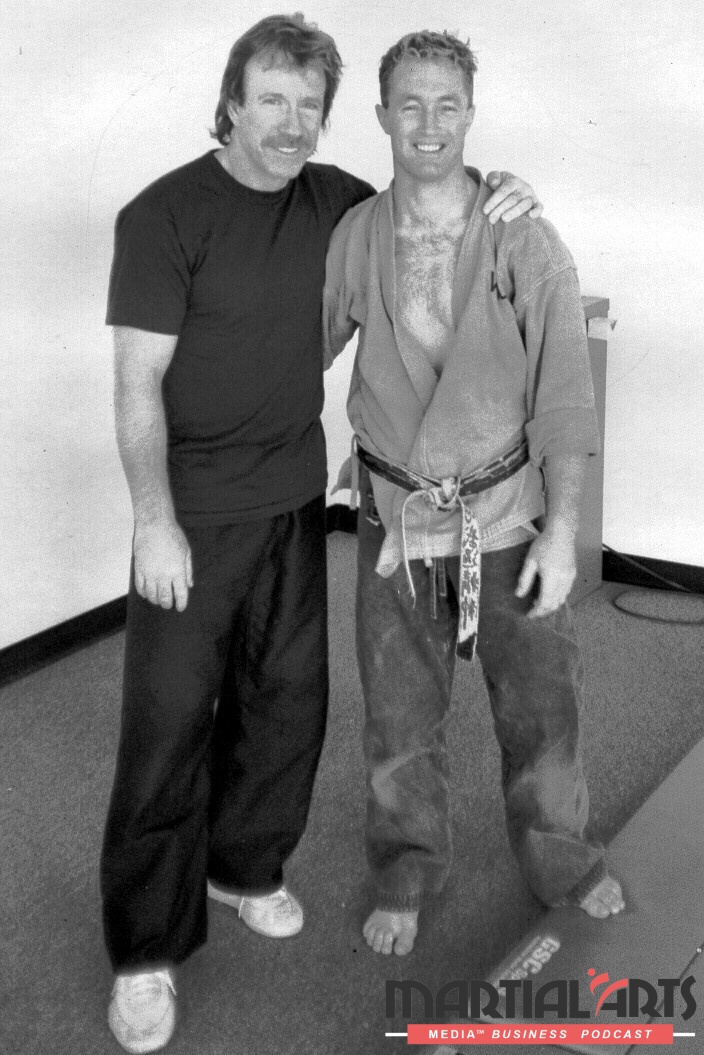
JOHN: I think it's really important. For me, club culture, it's purely a side benefit that is also good for business. I am not that interested in business. It might not look like that from the outside. People go, “Hang on, you got all the stuff that you got, and you got this and that”. I couldn't care less about it. It's a byproduct of being passionate about what I do and caring about what I've learned. Now, the analogy I'll give you is before, you might have to remind me about the culture question. This was an analogy told to me by Robert Kiyosaki, who was talking about Buckminster Fuller, who wrote a book called ‘The Critical Path'.
Buckminster Fuller was the most inspiring person, he was Robert Kiyosaki's hero. And Buckminster Fuller gave this analogy, and I'll repeat it here, he says, “How do you know, that you're doing life well, is by the consequences of your action.” In other words, and the analogy he used was, a bee goes around being a bee, and it wants to collect pollen from the flowers. It doesn't even know about the greater thing, which is cross pollination of flowers. It just thinks it wants to go and collect the pollen. With the greater processional effect of it doing what it's doing, is that it's cross pollinating flowers, and we get these gardens, and we get all this stuff. And he says, you can tell the bee is being true to its Venus, because of the cross pollination, that it might even be unaware of. I kind of liked that idea.
To me, the money side and the business side, and the successful stuff like that, is the cross pollination of flowers. I, as the bee, actually don't care about that. I care about being passionate about what I'm doing, and I'm interested in it. How I know I'm doing it right, is if I step back, when someone points out that cross pollination happened. That is, I got no debts or got enough money for 20 years, and all that shit that I don't care about, you know, what I'm saying? I think a lot of people chase that stuff. If they are chasing the effect, maybe they're not truly being tethered to their passion or their mission. So, going back to your question about club culture, it's very important to me, it has certain benefits, which I don't care about.
But I'm passionate about what I do, and teaching at my school. So, because that's an extension of my home, my mat. When I'm on the mat, it's kind of like an extension of my home, it's another room in my house. So, it's not like business, separate. It's part of who I am, defines who I am. So, I want that to be comfortable, and I want it to be the way… Like, if you run a barbecue at your house, you're not going to have people come to the barbecue that you don't like, who aren't behaving well. And my school is just like that, except that's not a barbecue, it's training.
So, I'm not going to have people in there who don't gel with the atmosphere that I want to create. Now, weirdly, paradoxically, like when people in martial arts business, I guess, I'm no business guru, what do I know about business? I just know how to do life. But business – if they're just focusing on business and the numbers, then one of the things I see happening is they think more customers are better, because it's more money. And that to me, I disagree with, because that means they'll train anyone for money, and now they've got people in there who are acting counter to the culture they're trying to build.
So, I think that some of what they want to do is counterintuitive. They've got to identify and get rid of the 10% of their school that's taken away from the culture they're trying to build. That is counterintuitive to a purely business person who's trying to get as many customers as he can. I don't give a shit about customers. Customer, getting numbers, I don't care about that.
GEORGE: I think you just answered the first topic we discussed, you know, we were talking about having a black belt brain and applying yourself and why people aren't succeeding in other areas of life. And it could be that it's just the wrong ‘why', it's following the wrong drive, and focusing on the wrong thing, and all these side effects possibly are happening.
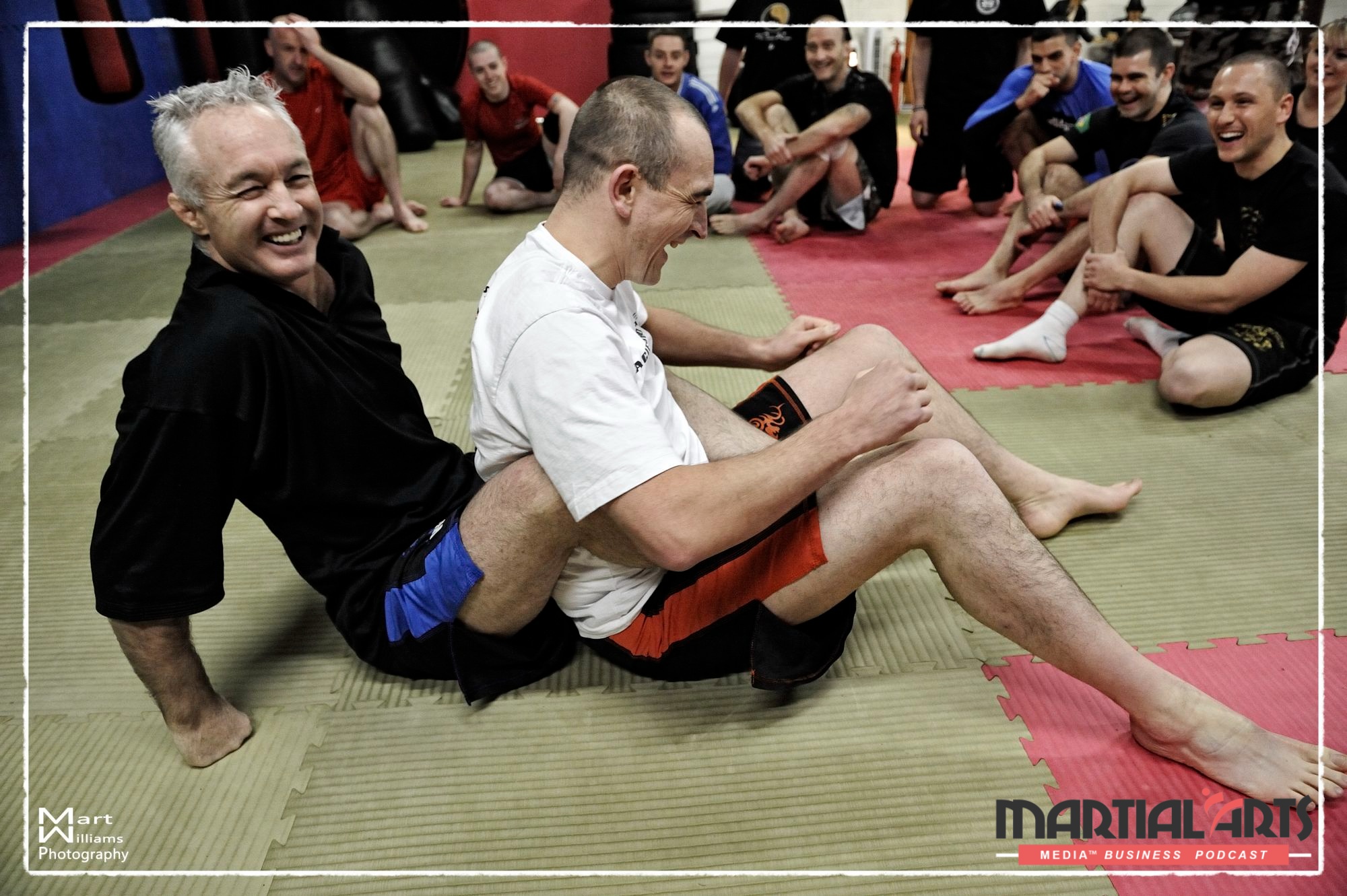
JOHN: You will be very aware, as anyone who's done any kind of business or I mean, talking about saving money, investing money, superannuation, American 401k, you know, whatever it is. You need to do whatever it is you're doing for a long time for this to work, right? Mostly, there's no shortcuts, sometimes you get one, you know, you can buy 100 Bitcoin when it's $5. But it wasn't genius, it was just luck, right?
So, most of the time, whatever you're going to do, you're going to do it for 10 or 20 years, whether it's investing in property – it's not a five year gig, it's a 10 to 20 year plan. Saving 20% of your income and reinvesting is a 20 year plan. Learning a new language is a 10 year plan. It's not a three month plan. So, everything's a 10 year plan, let's say, but what I really mean is 20. But if everything's a 10 year plan, our approach has to be the kind of approach that I can sustain for that long.
So, there's even another reason why I want to be very careful about the way I budget, I have to be happy with it, so that I can keep doing that for the 10 or 15 or 20 years it's going to take to get these peripheral benefits from it. So, I mean, you could do all these – I remember going to America a lot, way back, and you know, some of these martial art conventions and stuff, right? Where it's all business tricks, how to do business tricks, to trick people into joining your schools, then you can make a lot of money. All these suits walking around giving lectures about business tricks, made me sit. One, because none of them, I wasn't impressed with any of them as martial artists. So, there's that.
And the second thing is, how long could they do that all before they wanted to just, woke up one day and wanted to shoot themselves in the head? And some of them did, because if they're not really, they're just doing tricks and they're not connected to their purpose and passion. They're too busy learning the tricks. I think you've got to take a stance of green and stuff, you got to take a sustainable approach to whatever it is you're doing. If you take a sustainable approach, you'll be happier as a human being, your relationships will be better, you'll be a better person. And you'll be able to do it for 10, 15, 20, 30, 40 years. And even if you do a bad job, if you do it for 40 years and save 10% of what you earn, you'll be a millionaire a couple of times over. I take that approach – got to be sustainable.
GEORGE: Love it. John, I want to be conscious of your time. I've got one more, one question for you. I so resonate with the tricks because you know, I mean, what got me into working with martial art school owners was the fact that there was a business model where it comes from passion and drive and something with some essence.
Coming from that online marketing space, it is a place full of hype and tricks. It was never there when I started working with martial arts school owners, but I was sorely disappointed when it started to creep in. And I'm very against that, because it's tiring, and it's not sustainable. Chasing tricks means your business is chasing tricks. But it's kind of what we spoke about in the beginning, of not being resilient and working on the things that actually bring results over time. It's dabble here and dabble here. Like I always say to my clients, just put the horse flaps on, work your plan, do your thing.
JOHN: Do all these things are what these American people do? I don't do those things, but I've got a waiting list of 103 people to join my school. I don't do the tricks, but what I do is, I do my job well. I care about planning my classes, I care about the class, I care about getting outcomes on the mat, getting results, the culture created, you know. Obviously, there just has to be some things, there's got to be some basics in place.
So that you automate things you don't care about, like payments, good that they automated, I don't have to care about that. Or advertising – we don't do much advertising, but pre-COVID, we were dropping flyers out. So, I wouldn't reactively market, I just do 60,000 flyers, give them to the guy and say, “Put out 5000 a month and call me when you run out.” So, I automate the things that I'm uninterested in, automate the things you're uninterested in. Just make it automatic, so you don't have to attend to it ever again.
GEORGE: Focus on the product.
JOHN: My business advice, but I like automating the things. I know I should do these things. You know, so I'm not saying you shouldn't do things, I'm just saying, it shouldn't be all about trying to find some trick people. That's no good. When COVID happened, a lot of the martial arts schools were begging their students to keep paying the money, “Keep paying my fees, I'm gonna die! If you want your martial arts school to be still here, when COVID is over, you need to keep paying me. I'll teach you a Zen class on stretching, so that you feel like you're getting something for your $100 a month.” I didn't do it. I just stopped everyone's fee straightaway, because leaders should eat last.
If anyone's going to suffer, it's going to be me, not my students. And so I stopped everyone's fees right away. If I need money, I'll go, if I did need money, and if I wasn't organized and squared away, and I was owing money, I would go and get a job at McDonald's or digging holes, or whatever I needed to do like every other human being. And then I would live on that. And that's what, so I stopped it. I bought a lot of goodwill by doing that. And that goodwill that I got, when I came back, about eight weeks before Christmas, I didn't turn their fees back on, I said, “I'll give you six weeks, no one's going to pay fees for the rest of 2020. It's on me, at my school, to enjoy it, because I know everyone's having a difficult time.” As it turns out, the goodwill that I got with that was worth way more in dollar terms and what I would have got by begging for money.
So, you know, so the same thing I'll say to a lot of people, what I say to a monk in Thailand, “Hey, you want money? Go get a job like everyone else.” I think that we need to show leadership. Well, we don't have to, but the way I view it is that I have a leadership role at my school. And now if I want to go beyond that, outside the circle of my mat into the community, and if I'm calling myself a leader, which I'm not really, people are, but if that's the role I had, I should show some leadership and suck it up. You know, so I think all of that is so important and life is, it's not always easy. You know, it's difficult. So, it's difficult for lots of people. We need to show that we can get through that, that we can suck it up. You know, it's like most things, get this, rainy days followed by a sunny day. You just have to wait, you may as well make the best of the rainy day, enjoy it, because it's going to go away and then it's going to be too hot. And then everyone will be complaining about it being too hot.
GEORGE: Yeah, I've got to admit I've been, because I remember you sharing that, that post about shutting down and everything, and I've got to admit, I was sort of on the two sides of it. Because, you know, I had a lot of clients that I was concerned about, like, if you do that, you might not be here in two months, you know. I remember I had an event planned in Perth for over the weekend, and that's when we realized COVID is actually a thing. It's actually a thing.
I ignored it for probably the longest, but then I realized, alright, this is probably serious, and I was with my wife and I said to her, “Look, I'm going to go down to the office and I'm just going too…” I'm a martial artist. I've not run a school. But I've worked with martial arts school owners for longer than I've done martial arts, and I thought if there's one thing that I could probably bring to the table, was my knowledge of running a business online. Can somebody get something out of that, that they can provide value through their membership that's not on the mats, you know, the vehicle of the mat is gone, and it can be done online.
So, I put together this thing, and I gave it away for free and I just wanted to make sure we can help and looking back at it now, you know, some guys did. Most of your jiu jitsu guys did exactly what you did – shut completely and kept things going for free. I think the karate guys, the Taekwondo guys had it a bit easier, because Zoom is a bit easier. I mean, I've got guys in the UK that are still running their Zoom classes, and you know, it's become a thing. But it's interesting to look back, because a lot of guys that did go one path did it successfully, you know, the online thing, and some guys are still trying to get their students back. And then the guys that actually cut everything and carry the weight, when they flicked it back on, we're in the same situation as you were – that the goodwill carried over. Nobody had to put in a cancellation, I think was the key thing. Nobody had to assess what we were doing and put in a cancellation and they're not able to get open doors and carry on.

JOHN: Look, it's also good to take the macro view – life is long. Yeah, like people who've been around for a while in the martial arts, the way I looked at it was – you know what, this is just the long service leave that I would never take unless someone's got a gun to my head. So, someone did put a gun to my head, saying “You're taking long service leave,” and I went, “Maybe I should be!” Just like that, you know, the race is long. I think a big lesson, which is one that I would have, I've been recommending to people anyway.
So, we can talk about, if we have a discussion about making a living from martial arts, okay, let's call it business. I don't think of it like that, but we'll say that. If you're talking about making a living from martial arts, to me, it's not just about how much money you're getting in. I don't think that matters actually as much as people think. You can get in 60, $70,000 a year that's, yeah, very modest, running a nice little school. But it's what you do with that 60 or $70,000 over 15 to 20 years that will make you fantastically independently wealthy or not. There are other people who are boarding $300,000 a year, 400 grand a year, and they still don't own their home, and they still have credit card debt. Like, I don't know, other people who might only earn $60,000 a year, but 20 years later, they own three, four houses with no debt.
So, it's not just about the money that comes in, it is how much you're keeping. And I think a lot of people have a bucket, and the hole in the top of the bucket is the same size as the hole in the bottom of the bucket! And they're wondering why the day after the rain stops coming that they’re dying of thirst. I mean, guys, you need to learn how to plug the bottom of the bucket and even a little sprinkle of a rain, meaning the income, will see you with an excess of water. So, you can't just concentrate on making money. You've got to look at your lifestyle, maybe tune that a little bit better. And then your investment strategy – maybe tune that a little bit better, and create a self-managed super fund, so you're not going to get taxed and then you've saved 30% right there.
Do all these little things and not put all of your attention on “I need another customer”, because we've, what do you call it? A modest amount of income. It's never been unbelievably good. You know, it's not been hundreds of thousands of dollars a year. Plenty of people earn that, we haven't. But you know, it's easy to accrue millions of dollars and have no debts, if you just put it in the right spots, and learn a tiny bit about self-managed super-funds, 401K or, you know, in America, IRA lots. I'm not talking about being serious, just spend half an hour a week, and do that for a year and you'll be ahead of 99% of the planet. Read the richest man in Babylon, and then just double it. I believe this is what you should do, like, not 10% you should save 100% of one of your two incomes.
GEORGE: Nice.
JOHN: Get two jobs, or if your wife's got a job and you've got a job, or work two jobs, suck it up and save 100% of one of those jobs. Just do that for five or 10 years, and wait. But people don't want to do it.
GEORGE: Patience and resilience, yeah. Hey, John, thanks so much. I do have one more question. Again, at the seminar, you were talking about reevaluating the reasons why you do what you do.
JOHN: Yes.
GEORGE: And I wanted to ask you that, you know, you mentioned the reasons that you train, still train, you know, for where you're at in life has evolved and changed over time. So, what is that for you? What keeps you going?
JOHN: So, when I started, it was about, I mean, if you really dig in, it was probably about building self-confidence. You know, if you drill down, I could say it was about self-defense, but probably really about when you get into some fights – it's not just self-defense that you're then looking for, it's really about your confidence having taken a hit, and you need to build your self-esteem, stuff like that. But you can say self-defense, but unless you're getting into like a fight every week, you're only getting into a couple of fights a year, which most people aren't even doing that. But say it was a couple of fights a year, because you're the kind of personality that can't take a step back, let's say.
Then, it's still not about self-defense, because a couple of fights a year, really? You're going to spend all that money and all that time and get all those injuries? You're better off just having the two fights a year and getting beaten. In terms of the injury, and the money, it doesn't make sense. So, I think it's about self-esteem. I started out like that, then it becomes like you're fascinated with the concept, and the way you see yourself as this thing. So, you have to like, so you don't suffer cognitive dissonance, you have to make the vision that you have in your head and the reality of who you are the same. That requires training.
And then it's like, morphs again, for me, it morphed into, like just the adventure of it all. Like, it's just an adventure to, you know, training overseas in different countries. It's like the hobbit going on a journey. You know, it's like, you don't know what's going to happen. Some good stuff, some bad stuff, like, COVID was a bad thing, but don't cry, because you're sad you're alive. You want to go live to be an adventure, I will don't you realize that when you're a hobbit on an adventure, there's a troll that's trying to eat you.
So, what you're telling me is you don't want all of the adventure, you just want the fun bits. That's not an adventure. An adventure is the contrast between the bad and the good things, and that the grind and fun day, and the lack of money and the money, and the hunger and then that nice meal, and you know that it's an adventure because of contrast. If there's no contrast, you're in hell. So, it was then for me about all the adventure and all that. Now, it's not so much like that. For me now. It's about I like design – by design, putting things together in a more optimal way, which goes to design. I like that and problem solving, creative problem solving, or problem solving that requires creative thinking. I like that stuff.
My martial arts practice is a vehicle to just keep that part of my brain. You know, training like, keep it active. I like doing that. And for me now, it's much more about that and leaving, sounds a bit weird, but leaving a good footprint in the world. So, I like to do that with the footprint, try through teaching, because I have, to some degree, a captive audience when they're on the mat. So, I can teach them this thing that I like doing myself and that they're there for. And then I can slip in some other stuff when they're not looking, to make them maybe live their lives a little bit better. And then I'm making a better footprint on the planet. So, that's why I do it now. Not for the money anymore.
GEORGE: Love that. And that, what you just said, brings things sort of full circle and kind of what I experienced when, you know, when I listened to you at the seminar. It's not just the jiu jitsu, it's the life knowledge, and everything else that's being taught in between.
JOHN: Well, I don't want to get into this whole thing about being a guru. Right? Because a lot of martial arts people are portraying themselves as some kind of life guru. But if you look at their lives, you do not want their life. They are hollow, in debt on their credit card, bad relationship, they're plastic, inauthentic. I don't want that. But I'll just say, listen, I want to try to live my life by example, and I'm happy to be judged.
In all, every facet of my life, I'm happy to be judged, because I'm trying to do the whole thing well, balanced. And then people can make their own decision. So, they can go, they can look and go, “You know what, I'm going to listen to this person, because they seem to have ticked the boxes. So, I'm going to listen”, you know, and then they should listen to a lot of other people. And then they should step back and then make up their own mind about which advice they can take from who to create a better life for themselves.
GEORGE: John, thanks so much. You know what, yesterday I walked into one of my favorite little book shops. It's a niche little book shop, I pop in there every so often. And I was pretty lucky, right? Because I walked in, and I saw these three stacked next to each other, and I thought, yeah, that's something I don't see in the bookshop every day. So, I'd love to say I've read them all, but it's been one day of about 10 pages in. Yeah, so they are available on the website, BJJ?
JOHN: They are on my website, BJJ. Oh, the name of that book, Rogue Black Belt.
GEORGE: Rogueblackbelt.com.
JOHN: You can get them there as well. Basically, I mean, it's an autobiography, but it didn't start out to be that. Someone like yourself just asked me a question. They said, “What are the 10 best things you've ever learnt?” You know, like the 10 best life lessons I've ever learned to think about. I wrote them down. And then, oh, is that 11? Oh, 12. Oh, hang on, there's 24, 25, so that in those books, there were 60 most important things I've ever learned. So, I wrote them down. And then I put them in chronological order, and then told the story that went with that – turned into an autobiography by accident.
GEORGE: Great, awesome. Well, I'm looking forward to diving in and perhaps I can, I'll swing you in for round two after I've got some more insight.
JOHN: Yeah.
GEORGE: Perfect, John. Thanks so much. So Rogueblackbelt.com, you mentioned?
JOHN: Yes.
GEORGE: And bjj.com.au. Anything else? Any last words? Anywhere we should check out any of your seminars or any…
JOHN: Oh, they can figure it out, I'm not trying to sell it.
GEORGE: Perfect. John, thanks so much for your time. Much appreciated. And I'll catch you in the next one.
JOHN: Thanks, George.
GEORGE: Thank you. Cheers.
Here are 3 ways we can help scale your school right now.
1. Join the Martial Arts Media™ community.
It's our new Facebook community where martial arts school owners get to ask questions about online marketing and get access to training videos that we don't share elsewhere – Click Here.
2. Join the Martial Arts Media™ Academy and become a Case Study.
I'm working closely with a group of martial arts school owners this month. If you'd like to work with me to help you grow your martial arts school, message me with the word ‘Case Study'.
3. Work with me and my team privately.
If you would like to work with me and my team to scale your school to the next level, then message me with the word ‘private'… tell me a little about your business and what you would like to work on together and I'll get you all the details.
Enjoyed the show? Get more martial arts business tips when you subscribe on iTunes for iPhone or Stitcher Radio for Android devices.
***NEW*** Now available on Spotify!


